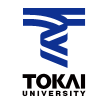- HOME
- For Patients
- Parkinson disease
- Treatment of Parkinson disease
Parkinson disease
- About Parkinson disease
- Symptom of Parkinson disease
- Other symptoms of Parkinson's disease
- Cause of Parkinson disease
- Diagnosis of Parkinson disease
- Treatment of Parkinson disease
- Details of surgical treatment
- Surgical treatment of Parkinson disease
- Timing of surgery
- About our team
Treatment of Parkinson disease
There are several possible choices of treatment
Treatment with medication
The basic treatment for Parkinson's disease is drug treatment to supplement the missing dopamine causing the disorder and so alleviate symptoms. Oral medication can now be taken as a direct supplement. Studies on the action of dopamine as part of the mechanism of communication between neurons have found the point at which the action of dopamine can best be assisted, and several different types of medication can now be used that are effective in assisting this action. Treatment is carefully tailored by combining medications with different effects to provide more effective therapy. Choices concerning types of medication and how much medication to take, however, must consider factors such as the symptoms and age of the individual patient, and regular checkups are required to ensure appropriate treatment is in line with symptoms.
Rehabilitation
As Parkinson's disease is mainly characterized by motor symptoms, a range of exercise therapies can be used in rehabilitation, which is regarded as an important part of treatment in terms of stabilizing and alleviating symptoms and improving everyday life. Many people get into the daily habit of carrying out stretches and other exercises, and used in combination with more specialist training in accordance with specific symptoms, such therapy is beneficial in reducing the severity of symptoms and alleviating pain.
Surgical treatment
If treatment with medication and rehabilitation therapy is continued long-term, these methods come up against several problems. These problems include the fact that medication may not continue to be effective in the long term or may cause side effects, and that symptoms may not improve even after medication has been adjusted. Surgical treatment is available as a supplement to medication and rehabilitation. Operations to alleviate particular symptoms have been performed for many years, but recently a new technique called "deep brain stimulation (DBS)" has been developed that is effective to a certain extent. This operation does not resolve the underlying cause, and so cannot be recommended for all individuals suffering from Parkinson's disease, but may be highly effective in alleviating symptoms in people with specific types of symptoms who respond poorly to medication and rehabilitation. Surgery is therefore regarded as the third-choice treatment.
Patients for whom surgical treatment is recommended are selected on the basis of more cautious decision-making from among those in whom medication is clearly effective to start with, but stops working after a short time, those whose symptoms are completely different while the medication is working and after it has worn off, those who would like to increase their dose of medication but cannot due to side effects or in whom side effects are already too severe, and those with severe persistent symptoms such as tremors or difficulty taking steps.
At Tokai University Hospital, we make the choice to perform surgery proactively but with a great deal of caution, in collaboration with the Department of Neurology and the Department of Rehabilitation. The Department of Neurosurgery performs deep brain stimulation surgery only in appropriate cases.







